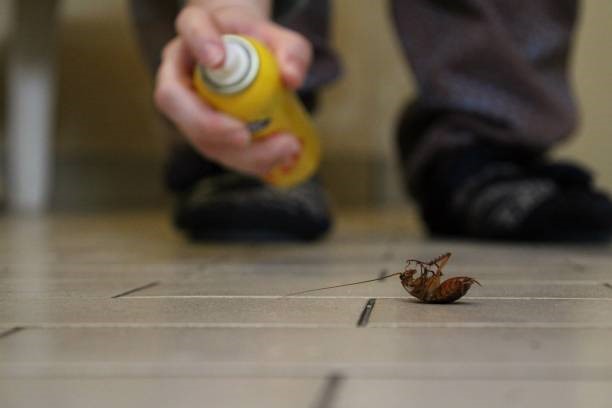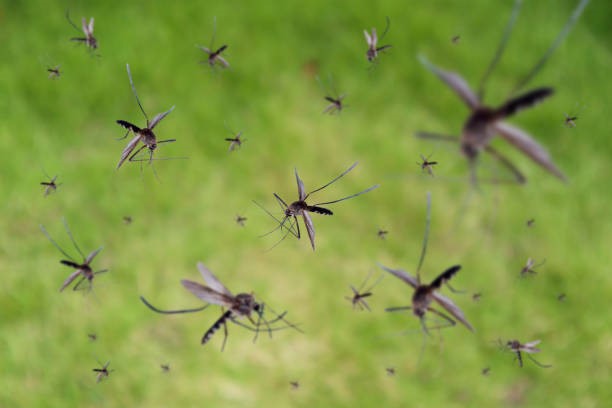Beyond Sprays: Advanced Cockroach Pest Control Methods for Long-Term Results in Singapore

Cockroaches are notorious pests that can invade homes and businesses, creating not only a nuisance but also potential health hazards. While traditional spray methods may offer a temporary solution, they often fail to address the root causes of infestations. In Singapore, where humidity and warmth create an ideal environment for these resilient creatures, advanced cockroach pest control methods are essential for achieving long-term results. This article explores innovative approaches to cockroach management, ensuring your space remains pest-free.
Understanding Cockroach Behavior
Before diving into advanced pest control methods, it’s important to understand the behavior of cockroaches. These resilient insects thrive in warm, moist environments and are often found in kitchens, bathrooms, and other areas where food and moisture are readily available. They are nocturnal creatures, primarily active at night, which makes them difficult to detect during the day.
Cockroaches are not just a nuisance; they can pose significant health risks. They are known to carry allergens and pathogens that can lead to respiratory issues and food contamination. This underscores the importance of effective pest control measures that go beyond basic sprays.
Signs of a Cockroach Infestation
Detecting a cockroach infestation early can significantly aid in effective pest control. Here are some common signs to look out for:
- Droppings: Small, dark droppings resembling pepper or coffee grounds are often found in areas where cockroaches frequent.
- Egg Cases: Cockroach egg cases, known as oothecae, are brown and oval-shaped. Finding these in hidden areas is a strong indication of an infestation.
- Odor: A musty or oily odor in your home can suggest a cockroach problem, as they produce pheromones that may lead to unpleasant smells.
- Shed Skin: As cockroaches grow, they shed their exoskeletons. Finding these skins can signal an active infestation.
If you notice any of these signs, it’s crucial to take action immediately to prevent further escalation.
Advanced Cockroach Pest Control Methods
1. Integrated Pest Management (IPM)
Integrated Pest Management (IPM) is a comprehensive approach that combines various strategies to control pest populations effectively. This method focuses on prevention, monitoring, and control, considering the life cycle and behavior of cockroaches.
Key Components of IPM:
- Prevention: This involves identifying and eliminating food, water, and shelter sources for cockroaches. Sealing cracks, fixing leaks, and removing food debris are essential steps.
- Monitoring: Regular inspections can help detect cockroach activity and assess the effectiveness of control measures. Using cockroach monitoring devices can aid in tracking their movement.
- Control Methods: If an infestation is detected, IPM employs a combination of methods, including baits, traps, and, if necessary, targeted sprays that are less harmful to the environment.
By focusing on long-term solutions rather than quick fixes, IPM aims to minimize the reliance on chemical treatments and reduce the risk of resistance development in cockroach populations.
2. Baiting Systems
Baiting systems are an effective alternative to traditional sprays, as they attract cockroaches to consume a toxic substance. This method not only targets the visible cockroaches but also those that may be hiding in inaccessible areas.
How Baiting Works:
- Attractants: Baits contain food substances that attract cockroaches. Once they consume the bait, the active ingredient disrupts their biological functions, leading to death.
- Transfer Effect: Cockroaches that consume the bait may return to their nests, where they can spread the toxin to other members of their colony. This transfer effect is crucial in reducing the overall population.
Baiting systems are particularly effective for managing cockroach populations over the long term, as they target the entire colony rather than just the visible individuals.
3. Gel Insecticides
Gel insecticides have gained popularity as an advanced cockroach control method due to their targeted application and effectiveness. These gels are formulated to attract cockroaches while containing potent insecticides that eliminate them upon consumption.
Advantages of Gel Insecticides:
- Targeted Application: Gel can be applied in hard-to-reach areas where sprays may not be effective. This allows for precise targeting of infestations.
- Low Toxicity: Many gel formulations have lower toxicity levels compared to traditional sprays, making them safer for use in homes with children and pets.
- Residual Action: Some gel insecticides have residual effects, meaning they can continue to kill cockroaches even after the initial application.
Gel insecticides are often used in conjunction with baiting systems for a comprehensive pest control strategy.
4. Insect Growth Regulators (IGRs)
Insect Growth Regulators (IGRs) are chemicals that disrupt the life cycle of cockroaches. By inhibiting their growth and reproduction, IGRs help control pest populations over time.
How IGRs Work:
- Disruption of Development: IGRs prevent cockroaches from maturing into adults or reproducing, effectively reducing their population over time.
- Long-Term Solution: Unlike traditional insecticides that kill only adult cockroaches, IGRs target the entire life cycle, making them a valuable addition to pest management programs.
Incorporating IGRs into your pest control strategy can enhance the effectiveness of other methods, leading to long-term results.
5. Professional Pest Control Services
While DIY methods can be effective, sometimes a professional pest control service is necessary for severe infestations. Professional pest control companies, such as Conquer Pest Singapore, have access to advanced technologies and treatments that are not available to the general public.
Benefits of Professional Services:
- Expertise: Pest control professionals are trained to identify the specific species of cockroaches and assess the extent of the infestation, allowing them to tailor their approach accordingly.
- Access to Advanced Tools: Professionals use advanced tools and methods, such as thermal imaging and moisture detection, to identify hidden infestations and areas conducive to pest activity.
- Long-Term Maintenance: Many pest control services offer ongoing maintenance plans to ensure that your property remains cockroach-free. Regular inspections and treatments can prevent future infestations.
6. Natural Pest Control Solutions
For those seeking eco-friendly options, several natural pest control methods can help manage cockroach populations. While these methods may not be as immediately effective as chemical treatments, they can be part of an integrated pest management strategy.
Natural Methods Include:
- Diatomaceous Earth: This natural powder can be sprinkled in areas where cockroaches are active. It works by dehydrating the insects upon contact, effectively reducing their numbers.
- Essential Oils: Certain essential oils, such as peppermint and tea tree oil, are known to repel cockroaches. Mixing these oils with water and spraying them in infested areas can deter cockroach activity.
- Borax: A common household product, borax can be mixed with sugar to attract cockroaches. When consumed, it disrupts their digestive systems, leading to death.
While natural solutions may require more time and effort, they can be effective in conjunction with other methods.
Conclusion
Cockroach infestations can be a significant challenge for homeowners and businesses in Singapore. However, by moving beyond traditional spray methods and adopting advanced pest control techniques, it is possible to achieve long-term results. From Integrated Pest Management to professional services and natural solutions, a comprehensive approach can effectively manage and eliminate cockroach populations.
At Conquer Pest Singapore, we are dedicated to providing effective and environmentally friendly pest control solutions tailored to your needs. Our team of experts utilizes the latest methods and technologies to ensure your space remains cockroach-free. If you’re dealing with a cockroach problem, contact us today for a consultation and take the first step towards a pest-free env
Combating Mosquito Menace: Effective Pest Control Strategies for Singaporean Homes

Mosquitoes are more than just a nuisance; they are a significant health risk, especially in tropical climates like Singapore. With the warm, humid weather, these tiny pests thrive, potentially spreading diseases like dengue fever and Zika virus. For homeowners in Singapore, tackling the mosquito menace requires a multi-faceted approach. In this article, we will explore effective pest control strategies to help you create a mosquito-free environment in your home.
Understanding the Mosquito Problem in Singapore
Singapore’s tropical climate provides an ideal breeding ground for mosquitoes. The most common mosquito species in Singapore include the Aedes and Culex mosquitoes. These mosquitoes are not just annoying; they can transmit serious illnesses. Aedes mosquitoes, for instance, are known vectors for dengue fever, a disease that can cause severe flu-like symptoms and, in extreme cases, lead to dengue hemorrhagic fever.
Mosquitoes breed in stagnant water, making any container or pool of water around your home a potential breeding site. This includes bird baths, flower pots, and even the trays under potted plants. Understanding these breeding habits is crucial for implementing effective control measures.
Preventative Measures to Minimize Mosquito Breeding
Eliminating Standing Water
The most effective way to combat mosquitoes is to eliminate their breeding grounds. Mosquitoes lay their eggs in stagnant water, so removing or managing any sources of standing water around your home can significantly reduce their numbers. Regularly check areas where water may accumulate, such as:
- Flower Pots: Ensure that pots have proper drainage or empty any standing water.
- Gutters: Clean gutters regularly to prevent water buildup.
- Air-Conditioning Units: Check for any water collection in and around air-conditioning units and drain it.
Regular Maintenance
Maintaining a clean and dry environment around your home is essential for mosquito control. This involves:
- Cleaning Outdoor Spaces: Regularly clean and remove debris from outdoor areas where water may collect.
- Checking Breeding Sites: Frequently inspect and clear potential breeding sites, including garden ponds and unused containers.
By taking these preventative measures, you reduce the likelihood of mosquitoes finding suitable places to lay their eggs, thereby controlling their population around your home.
Indoor Strategies to Combat Mosquitoes
Using Mosquito Nets and Screens
To keep mosquitoes out of your home, installing mosquito nets and screens on windows and doors is a highly effective strategy. These barriers prevent mosquitoes from entering while allowing fresh air to circulate. Ensure that screens are well-fitted and free from holes to maximize their effectiveness.
Repellents and Insecticides
Mosquito repellents and insecticides play a crucial role in indoor mosquito control. There are various types available, including:
- Repellents: These come in the form of sprays, lotions, and coils. Choose repellents with DEET, picaridin, or oil of lemon eucalyptus, as these are effective against mosquitoes.
- Insecticides: Indoor insecticides can help eliminate mosquitoes inside your home. Ensure that you follow the instructions carefully and use these products in well-ventilated areas.
When using these products, always prioritize safety and avoid overuse. Opt for natural or less toxic options when possible, especially if you have young children or pets.
Indoor Plants
Certain plants are known for their mosquito-repellent properties. Incorporating these plants into your indoor decor can help keep mosquitoes at bay. Some effective mosquito-repellent plants include:
- Citronella: Known for its strong scent that mosquitoes dislike.
- Lavender: The scent of lavender is soothing to humans but repellent to mosquitoes.
Growing these plants indoors not only enhances your home’s aesthetics but also contributes to a mosquito-free environment.
Outdoor Strategies for Mosquito Control
Landscaping Techniques
Landscaping plays a significant role in mosquito control. By making strategic choices in your garden, you can reduce the attractiveness of your outdoor space to mosquitoes. Consider:
- Planting Mosquito-Repellent Plants: Use plants like lemongrass, marigolds, and basil around your garden to naturally repel mosquitoes.
- Maintaining Proper Drainage: Ensure that your garden has proper drainage to prevent water from accumulating and creating breeding sites.
Effective landscaping can help minimize mosquito attraction and create a more enjoyable outdoor space.
Professional Pest Control Services
While DIY methods are effective, there are times when professional pest control services may be necessary. If you find that mosquitoes persist despite your efforts, consider:
- Consulting with Experts: Professional pest control services can assess your home and recommend targeted treatments to address mosquito issues.
- Exploring Treatment Options: Professionals offer various treatments, including fogging and larviciding, which can significantly reduce mosquito populations.
Hiring a pest control service ensures that you receive expert advice and solutions tailored to your specific situation.
Community and Environmental Efforts
Community Initiatives
Mosquito control is not just an individual effort; community involvement is crucial. Participate in local initiatives aimed at reducing mosquito populations, such as:
- Public Clean-Up Campaigns: Join or support community clean-up efforts to eliminate potential mosquito breeding sites in public areas.
- Awareness Programs: Engage in or promote awareness programs that educate the public about mosquito prevention and control.
Government Programs and Support
Singapore’s government has implemented various programs to combat mosquito-borne diseases. These include:
- Regular Inspections: The National Environment Agency (NEA) conducts inspections to identify and address mosquito breeding sites.
- Public Education: Government initiatives to educate the public about mosquito prevention and control measures.
Staying informed about government programs and actively participating in these initiatives can enhance community-wide efforts to control mosquitoes.
Conclusion
Combating the mosquito menace requires a comprehensive approach that combines preventative measures, indoor and outdoor strategies, and community involvement. By eliminating standing water, using repellents, and maintaining your home and garden, you can significantly reduce mosquito populations and protect your family from mosquito-borne diseases.
Implement these strategies to create a more comfortable and mosquito-free environment in your Singaporean home. For a more targeted approach and expert solutions, don’t hesitate to reach out to Conquer Pest Singapore. Our team of professionals is equipped with the latest tools and techniques to ensure your home remains free from mosquitoes. Contact us today for a consultation and take the first step towards a pest-free home!


